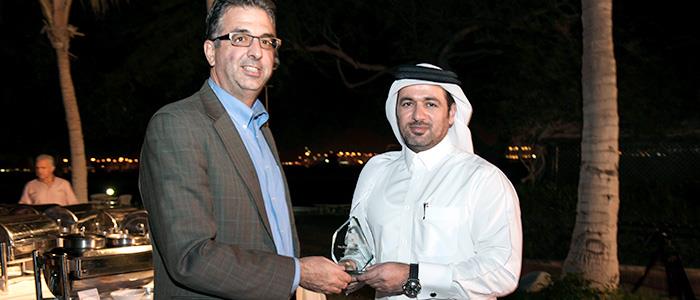Attendees at the region’s first Excellence in Paediatrics conference, hosted by Sidra Medicine, focused on the endemic problems of obesity and inactive lifestyles among many other topics discussed during the four-day event that came to a close this weekend.
Discussion around best practices for combatting obesity and encouraging more active lifestyles, two topics that are invariably intertwined across the globe but more markedly so in the region, resulted in some unique recommendations that could be replicated across countries. Healthcare professionals agree that behavior and lifestyle are the biggest indicators for obesity, resulting in a host of healthcare complications from heart disease to colon cancer.
According to Barbara Livingstone, Professor of Human Nutrition at the University of Ulster, who spoke at the Sidra Medicine-sponsored event, “The causes of childhood obesity are as varied as the children it affects. Over 30 potential risk factors for childhood obesity have been described, although few are supported by good quality evidence. Heredity plays a role in childhood obesity but generally to a much lesser degree than many people might believe. Unfortunately, in many countries around the globe, the environment has become increasingly toxic to maintaining a healthy weight and has been labeled ‘obesogenic or obesity-causing,’ which includes sedentary behavior, lack of sleep and the quality and quantity of the diet.”
Dr. Robert Sallis, family physician practicing at Kaiser Permanente Medical Center, the largest managed care organization in the U.S., and Past-President of the American College of Sports Medicine, described the novel “Exercise is Medicine” approach to treating obesity and promoting healthy lifestyles. “The problem of physical inactivity is a global pandemic with far reaching health, economic, environmental and social consequences. Imagine if we were talking about any other disease, calling it a pandemic would cause an outcry for action. Exercise is the medicine and the prescription is 30 minutes, five times a week for adults or 60 minutes a day for kids.”
Dr. Sallis pointed out that the sedentary death syndrome, the inactivity epidemic, is quite a real phenomenon. “Doctors should be educating patients about the benefits of exercise beyond weight loss. We have been so focused on the pills and procedures that the discussion about changing lifestyles has moved off the public agenda,” he said.
As the problem of obesity and sedentary lifestyles puts a significant number of people in the Middle East at risk for health complications, Dr. Paulina Nowicka, member of the Childhood Obesity Taskforce of the European Association for the Study of Obesity (EASO), called for abstract submissions for the European Congress on Obesity taking place on May 28-31, 2014 in Sofia, Bulgaria, the first time a session on obesity in the Arab world will be included in the program. Deadline for submissions is January 10th, 2014.
Obesity continues to be a growing problem in Qatar. The Qatar Supreme Council of Health is aiming to combat this significant health concern. The government plans to implement Project 3.2 Nutrition and Physical Activity, with the aim of bringing about behavioral changes to reduce the rate of obesity. Sidra Medicine is contributing to raising awareness in Qatar and the region by hosting medical education events as part of the Sidra Medicine Symposia Series.
Sidra Medicine and EiP welcomed over 1,500 attendees from more than 80 countries and gave special recognition to speakers and facilitators who made this event possible. Sidra Medicine’s Communications Director Khalid al Mohannadi was the recipient of the EiP Excellence Award for significant contribution to linking the world of medicine and public health to ensure work done by researchers and academics is translated into action for patients. “Conferences like EiP go a long way in brining world-class medical education to the region and Sidra Medicine has been proud to help make this event a reality,” said Al Mohannadi.


